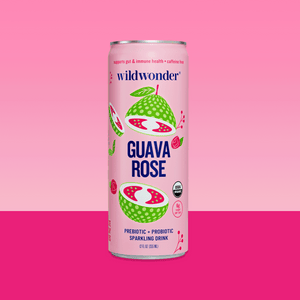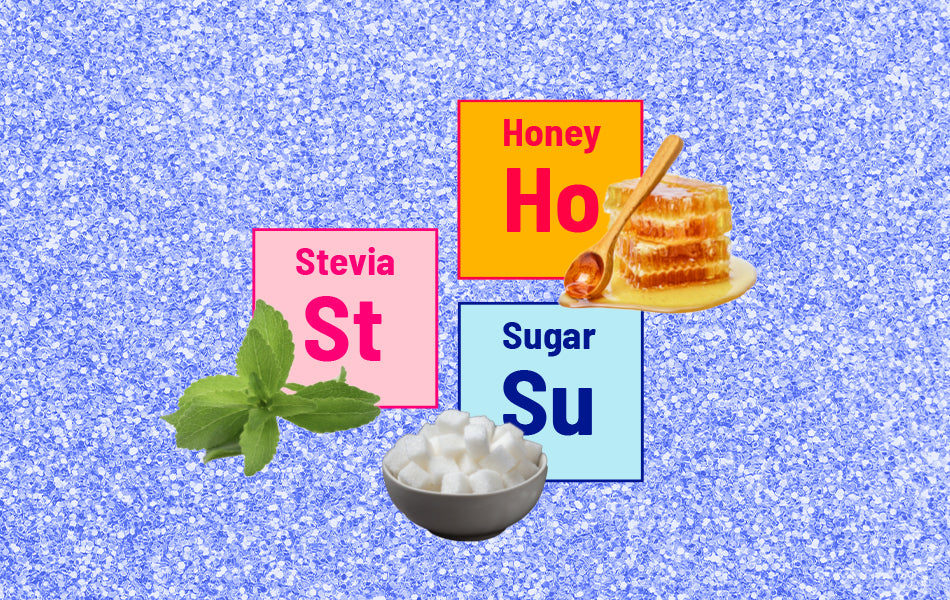Chicory root, derived from the chicory plant (Cichorium intybus), is becoming increasingly recognized for its numerous health benefits, particularly in supporting digestive health. Packed with inulin, a type of prebiotic fiber, chicory root promotes the growth of beneficial gut bacteria, contributing to improved gut health and overall well-being. As more individuals seek natural and wholesome ingredients to enhance their diets, the popularity of chicory root as a health food is on the rise, often among natural ingredients found in products like supplements, coffee alternatives, and fiber-enriched foods.
What is Chicory Root Fiber?
Chicory root fiber, extracted from the root of the chicory plant (Cichorium intybus), is a type of soluble fiber often used as a dietary supplement and food additive. It is primarily composed of inulin, a prebiotic fiber that promotes healthy gut bacteria, enhancing digestive health and overall well-being. Chicory root fiber contains approximately 68-75% inulin, along with small amounts of other fibers, including oligofructose, which contributes to its health benefits.
Composition of Chicory root.
The composition of chicory root fiber is predominantly inulin, a fructan that is not digested in the stomach, allowing it to reach the colon intact. There, it is fermented by beneficial gut bacteria, which can help improve digestion and absorption of nutrients. Additionally, chicory root fiber is low in calories and can contribute to a feeling of fullness, making it a popular ingredient in many weight loss management products.
Comparison to Other Types of Fiber
Compared to other types of dietary fiber, such as cellulose or psyllium, chicory root fiber is unique due to its prebiotic properties. While soluble fibers like oats and apples also offer health benefits, chicory root fiber specifically supports the growth of beneficial gut bacteria more effectively. In contrast, insoluble fibers, like those found in whole grains and leafy vegetables, primarily improve bowel regularity. Chicory root fiber therefore stands out as a versatile option for enhancing gut health, promoting satiety, and supporting overall digestive wellness.
Nutritional Profile of Chicory Root Fiber
Chicory root fiber is not only rich in inulin but also boasts a variety of other essential nutrients and compounds.
Inulin Content
As previously mentioned, chicory root fiber contains approximately 68-75% inulin, making it a potent source of this prebiotic fiber. Inulin plays a vital role in enhancing gut health by fostering the growth of beneficial probiotics.
Other Nutrients and Compounds
In addition to inulin, chicory root fiber contains various vitamins and minerals, including vitamin C, vitamins B1, B2, and B3, as well as important minerals like calcium, magnesium, and potassium. It also has antioxidants that help combat oxidative stress in the body. The presence of these nutrients, combined with its high fiber content, contributes to the overall health benefits associated with consuming chicory root fiber, including improved digestive function, increased satiety, and enhanced nutrient absorption.
Gut Health Benefits of Chicory Root
Chicory root fiber plays a significant role in promoting good gut health, by acting as a prebiotic, which nourishes beneficial gut bacteria. The consumption of chicory root has been shown to increase the population of probiotics, which helps balance the gut microbiome and supports digestive function. Additionally, this enhanced bacterial activity can lead to improved nutrient absorption and reduced gastrointestinal issues, contributing to overall well-being.
Prebiotic Properties of Chicory Root
Chicory root is renowned for its strong prebiotic properties, primarily due to its high inulin content. As a prebiotic, inulin serves as a food source for beneficial gut bacteria, helping to stimulate their growth and activity. This fermentation process not only aids in the development of a healthy microbiome but also contributes to the production of short-chain fatty acids (SCFAs) like butyrate, which have inflammation-reducing and gut-protective effects. By fostering a diverse and balanced gut flora, chicory root supports digestive health, enhances immune function, and may reduce the risk of certain gastrointestinal disorders.
Chicory Root's Impact on Beneficial Gut Bacteria
Chicory root significantly influences the composition and activity of beneficial gut bacteria, contributing to a healthier microbiome. The soluble fiber in chicory root, particularly inulin, serves as a substrate for fermentation by probiotic bacteria. This process not only enhances the growth of beneficial strains such as Bifidobacteria and Lactobacilli but also suppresses the proliferation of harmful bacteria, creating a balanced gut environment.
Increase in Bifidobacterium and Anaerostipes species
The consumption of chicory root has been linked to a notable increase in beneficial gut bacteria, particularly the Bifidobacterium and Anaerostipes species. Research indicates that the prebiotic fibers, especially inulin, effectively stimulate the growth of Bifidobacterium, which is vital for maintaining a balanced gut microbiome. Higher populations of Bifidobacterium are associated with improved gut health, enhanced immune function, and increased resistance to infections. Additionally, the fermentation of chicory root fibers promotes the abundance of Anaerostipes species, which are essential for producing butyrate—a key short-chain fatty acid that supports colonic health and reduces inflammation.
Effects on digestive health
Chicory root has been shown to significantly enhance digestive health by promoting the growth of beneficial bacteria in the gut. This prebiotic not only supports a balanced microbiome but also helps alleviate common digestive issues such as bloating and constipation. Furthermore, the production of short-chain fatty acids from the fermentation of chicory root contributes to a healthier gut lining and reduces harmful inflammation, leading to overall better digestion. The fibers from chicory root may help promote healthy and regular bowel movements.
Improved bowel function
Incorporating chicory root into the diet is linked to improved bowel function, alleviating issues such as constipation and irregularity. The fiber content in chicory root, particularly inulin, acts as a natural laxative, promoting regular bowel movements and preventing the discomfort associated with hard stools. Additionally, the fermentation of these fibers in the gut creates a more conducive environment for beneficial bacteria, leading to a healthier digestive process. Regular consumption of chicory root not only enhances bowel movements but also supports overall gut health, enabling a more efficient digestive system that efficiently processes nutrients and eliminates waste. By fostering these positive changes, individuals can experience improved gastrointestinal comfort and overall well-being.
Increased stool softness and frequency
Chicory root contributes to increased stool softness and frequency by adding bulk to stools. The soluble fiber, inulin, attracts water into the gut, which helps soften stools and promotes a smoother passage through the digestive tract. This moisture-retaining property not only aids those struggling with dry or hard stools but also fosters regular bowel habits, reducing the frequency of constipation episodes. By integrating chicory root into one’s diet, individuals can achieve a more comfortable and consistent elimination process, supporting overall digestive health and well-being.
Impact on Blood Sugar and Insulin Sensitivity
Chicory root has been shown to have a positive effect on blood sugar levels and insulin sensitivity, making it a valuable addition to the diets of individuals managing diabetes or insulin resistance. The soluble fiber in the chicory roots, particularly inulin, can aid in slowing the absorption of glucose in the bloodstream, resulting in more stable blood sugar levels. Additionally, regular consumption may enhance insulin sensitivity, allowing the body to utilize insulin more effectively, which is crucial for maintaining overall metabolic health.
Potential benefits for individuals at risk of type 2 diabetes
Chicory root may offer several potential benefits for individuals at risk of developing type 2 diabetes. The presence of inulin, a type of soluble fiber, not only aids in blood sugar regulation but also promotes gut health, which is increasingly understood to play a role in metabolic conditions. By enhancing insulin sensitivity and slowing glucose absorption, chicory root may help mitigate spikes in blood sugar levels after meals. Furthermore, the high fiber content contributes to increased satiety, potentially aiding in weight management—an essential factor in preventing type 2 diabetes.
Effects on glycemic control
In addition to its benefits in managing blood sugar levels, chicory root may contribute to a decrease in glycemic variability, which refers to the fluctuations in blood glucose levels throughout the day. By providing a source of soluble fiber, particularly inulin, chicory root helps to create a more gradual release of glucose into the bloodstream, reducing peaks and troughs associated with meals. This stabilization can lead to potential improvements in fasting glucose levels, an essential marker of metabolic health. Furthermore, research has indicated that chicory root may positively impact HOMA-IR (Homeostasis Model Assessment of Insulin Resistance), a method used to estimate insulin sensitivity. Improved HOMA-IR scores suggest that regular consumption of chicory root may enhance overall insulin effectiveness, contributing to better glycemic control and a lower risk of developing insulin-related disorders.
Short-Chain Fatty Acids (SCFAs) Production
Chicory root is a rich source of inulin, a type of soluble fiber that serves as a prebiotic. When consumed, inulin is fermented by gut bacteria, leading to the production of short-chain fatty acids (SCFAs) such as acetate, propionate, and butyrate. These SCFAs play a crucial role in maintaining gut health and metabolic processes.
Increase in Fecal and Circulating SCFAs
The consumption of chicory root has been shown to significantly increase the levels of fecal and circulating SCFAs. This increase is largely attributed to the fermentation of inulin by beneficial gut microbes, which enhances the production of SCFAs in the gastrointestinal tract. As a result, individuals who include chicory root in their diet may experience improved gut microbial diversity and an elevation in SCFA concentrations in their intestinal and systemic circulation.
Importance of SCFAs for Gut and Overall Health
Short-chain fatty acids are vital for gut health as they serve as an energy source for colon cells and help maintain the integrity of the intestinal barrier. Additionally, SCFAs possess anti-inflammatory properties, support the regulation of metabolism, and may contribute to the modulation of immune responses.
Other Potential Health Benefits
Chicory root may offer additional health benefits beyond its prebiotic effects. Research suggests that its consumption could support weight management by promoting feelings of fullness and reducing overall calorie intake. Additionally, the antioxidants present in chicory root may help combat oxidative stress and promote overall well-being.
Weight Management
Chicory root is a valuable addition to weight management strategies due to its high fiber content, particularly inulin, which can enhance satiety. By increasing feelings of fullness, it may reduce the likelihood of overeating and snacking between meals. Additionally, it supports healthy digestion and may improve gut health, which can further aid in weight management efforts.
Heart Health
Incorporating chicory root into one’s diet can contribute positively to heart health. The soluble fiber found in a chicory root coffee has been shown to help lower cholesterol levels, which is a key factor in reducing the risk of heart disease. soluble fiber dissolves in water to form a gel-like substance in the small intestine. This gel traps cholesterol and sugar, preventing their absorption into the bloodstream and thereby reducing overall cholesterol levels. Moreover, the presence of antioxidants in chicory root may assist in preventing oxidative damage to blood vessels, further supporting cardiovascular health and promoting overall heart function.
Immune System Support
Chicory root may bolster immune system function by enhancing gut health, as a significant portion of the immune system is located in the gastrointestinal tract. The prebiotic properties of inulin encourage the growth of beneficial gut bacteria, which can improve immune responses and help fend off infections. Additionally, the anti-inflammatory effects of SCFAs produced during the fermentation of chicory root may further support a well-functioning immune system, fostering resilience against various health challenges.
A healthy gut plays a crucial role in supporting immune health due to the intricate relationship between the gastrointestinal system and the immune system. Approximately 70% of the body's immune cells are located in the gut, where they interact with the gut microbiome, which helps regulate the immune response. Additionally, a balanced gut microbiome promotes the integrity of the intestinal barrier, preventing harmful pathogens from entering the bloodstream and triggering immune reactions.
How to Incorporate Chicory Root Fiber into Your Diet
Integrating chicory leaves and root fiber into your diet can be a simple yet beneficial adjustment to enhance overall health. With its versatility in various food products and cooking methods, chicory root fiber can easily be added to meals, snacks, and drinks without compromising flavor. Here are some practical ways to include this nutritious ingredient in your daily routine.
Food products containing chicory root fiber
Chicory root fiber can be found in a variety of commercially available food products, often labeled as inulin or chicory root extract. Many health food brands incorporate it into bars, cereals, and dairy alternatives, providing an easy way to boost fiber intake. Additionally, several low-calorie snacks and gluten-free products utilize chicory root as a key ingredient, making it accessible for those looking to maintain a healthy diet. Chicory root is also found in wildwonder drinks, making it a unique effervescent drink that helps fuel the body with this key ingredient. You can learn whether a commercially produced product is made with chicory root by looking at the ingredient label of the food.
Chicory coffee is a unique beverage made from the roasted and ground roots of the chicory plant. Often used as a caffeine-free alternative to traditional coffee, it has a rich, slightly nutty flavor with hints of sweetness. Chicory coffee has a long history, particularly in New Orleans, where it became popular during coffee shortages in the 19th century. It can be enjoyed alone or blended with regular coffee to create a distinctive taste experience.
Cooking and baking with chicory root fiber
Incorporating chicory root fiber into your cooking and baking can add nutritional value to processed foods while maintaining a pleasant texture. It can be used as a substitute for sugar or fat in recipes, as it not only sweetens but also contributes to moisture. Adding it to smoothies, soups, salads, or sauces can enhance their fiber content, and it can be blended into baked goods like muffins and bread without altering the overall taste.
Recommended daily intake of Chicory Root.
The ideal daily intake of chicory root fiber may vary depending on individual dietary needs. Including it in a diet may support digestive health and provide the prebiotic benefits associated plant foods along with inulin. As with any dietary change, it's advisable to gradually increase fiber intake to avoid gastrointestinal discomfort, ensuring the body can adjust to the higher levels of fiber over time.
The recommended daily intake of fiber varies based on age and gender. Generally, adults should aim for about 25 grams of fiber per day for females and 38 grams for males. After age 50, the recommendations adjust slightly due to decreased caloric needs, suggesting 21 grams for women and 30 grams for men.
Potential Side Effects and Precautions
While chicory root fiber is generally considered safe for most people, some may experience digestive discomfort, such as gas, bloating, or cramping. These symptoms are typically associated with an increase in fiber intake and may be mitigated by starting with small amounts and gradually increasing consumption. It is also important to stay well-hydrated to help ease any potential side effects.
Digestive Discomfort
Those not accustomed to high fiber diets may find that sudden increases in chicory root consumption can disrupt their digestive system, causing gas and bloating. To prevent these issues, it is recommended to incorporate chicory root gradually into the diet, allowing the body adequate time to adjust to the increased fiber levels. And drink a lot of water!
Who Should Avoid Chicory Root Fiber
Certain individuals should exercise caution or avoid chicory root fiber altogether. People with specific sensitivities, such as those with allergies to ragweed or other plants in the daisy family, may experience allergic reactions. Additionally, individuals with irritable bowel syndrome (IBS) or other gastrointestinal disorders may find that chicory root exacerbates their symptoms and should consult with a healthcare professional before including it in their diet.
Conclusion
In summary, chicory root fiber presents numerous health benefits that can contribute positively to overall well-being. Its capacity to improve gut health is primarily attributed to its high inulin content, which fosters the growth of beneficial gut bacteria. Additionally, chicory root has been shown to aid in better glycemic control, making it a valuable addition for those managing blood sugar levels. The increased production of short-chain fatty acids (SCFAs) from the fermentation of its fiber offers further health advantages, including enhanced metabolic health and anti-inflammatory effects. As research continues to unfold, future investigations may explore the full potential of chicory root fiber, including its long-term impacts on digestive health and its role in chronic disease prevention.
wildwonder's use of chicory root fiber
Wildwonder selected chicory root fiber not only for its rich texture and pleasant taste but also for its exceptional health benefits. This natural ingredient serves as a powerful prebiotic, which directly supports digestive health by promoting the growth of beneficial gut bacteria. The decision to incorporate chicory root fiber aligns with wildwonder’s mission to create beverages that prioritize wellness without sacrificing flavor.
Natural Source of Prebiotic Fiber
Chicory root fiber stands out as a source of inulin, a soluble fiber celebrated for its prebiotic properties. This fiber nourishes the good bacteria in the gut, which plays a crucial role in maintaining a healthy digestive system. By including chicory root fiber in its formulations, wildwonder effectively enhances the nutritional value of its beverages packaged foods, making it easier for consumers to meet their dietary fiber needs.
Potential for Improving Gut Health and Metabolic Markers
Research suggests that chicory root fiber may contribute positively to gut health by fostering a diverse microbiome, which is linked to improved digestion and overall health. Additionally, there is evidence that incorporating prebiotic fibers like chicory root can lead to better metabolic markers, including enhanced blood sugar management and reduced insulin resistance.
How Chicory Root Fiber Contributes to Wildonder's Health Benefits
Chicory root fiber plays a vital role in supporting the increased presence of beneficial gut bacteria, which are essential for optimal digestive function and overall health. Moreover, this naturally occurring fiber can aid in blood sugar management, making Wildwonder a smart choice for those seeking healthier beverage options.
Comparison to Traditional Sodas and Other Beverages
Compared to traditional sodas, many foods which often contain high levels of sugar and empty calories, wildwonder beverages stand out with their lower sugar content. The drinks are also free from anything artificial, which is different than many of the original sodas on the market. Including chicory root fiber provides added health benefits, making wildwonder a healthier alternative that supports a balanced lifestyle.
About the Author
 Meet Lauren Manaker, MS, RDN, LD, CLEC, CPT, wildwonder's new resident dietician. Lauren is a multiple award-winner, book author, and freelance writer. She acts as an expert resource for outlets that include EatThis.com, Well + Good, and MindBodyGreen, leaning on her ability to interpret the medical literature to benefit her readers.
Meet Lauren Manaker, MS, RDN, LD, CLEC, CPT, wildwonder's new resident dietician. Lauren is a multiple award-winner, book author, and freelance writer. She acts as an expert resource for outlets that include EatThis.com, Well + Good, and MindBodyGreen, leaning on her ability to interpret the medical literature to benefit her readers.
 Shark Tank Bundle
Shark Tank Bundle
 Classic Variety Pack
Classic Variety Pack
 Very Berry Variety Pack
Very Berry Variety Pack
 Rosa's Favorite Variety Pack
Rosa's Favorite Variety Pack
 Pink Pomelo Limeade
Pink Pomelo Limeade
 Cherry Lemonade
Cherry Lemonade
 Raspberry Lychee
Raspberry Lychee
 Strawberry Passion
Strawberry Passion
 Pineapple Paradise
Pineapple Paradise
 Guava Rose
Guava Rose
 Mango Gold
Mango Gold
 WILD MAHJONG TILES
WILD MAHJONG TILES
 Blog
Blog
 Our story
Our story
 Impact
Impact
























































